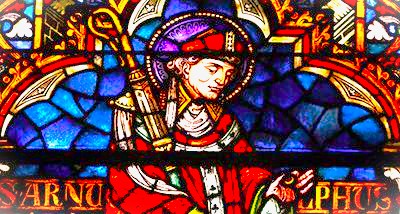Friday of the 15th Week in Ordinary Time
Mass Readings
First Reading – Ex 11:10—12:14
Although Moses and Aaron performed various wonders in Pharaoh’s presence, the LORD made Pharaoh obstinate, and he would not let the children of Israel leave his land. The LORD said to Moses and Aaron in the land of Egypt, “This month shall stand at the head of your calendar; you shall reckon it the first month of the year. Tell the whole community of Israel: On the tenth of this month every one of your families must procure for itself a lamb, one apiece for each household. If a family is too small for a whole lamb, it shall join the nearest household in procuring one and shall share in the lamb in proportion to the number of persons who partake of it. The lamb must be a year-old male and without blemish. You may take it from either the sheep or the goats. You shall keep it until the fourteenth day of this month, and then, with the whole assembly of Israel present, it shall be slaughtered during the evening twilight. They shall take some of its blood and apply it to the two doorposts and the lintel of every house in which they partake of the lamb. That same night they shall eat its roasted flesh with unleavened bread and bitter herbs. It shall not be eaten raw or boiled, but roasted whole, with its head and shanks and inner organs. None of it must be kept beyond the next morning; whatever is left over in the morning shall be burned up. “This is how you are to eat it: with your loins girt, sandals on your feet and your staff in hand, you shall eat like those who are in flight. It is the Passover of the LORD. For on this same night I will go through Egypt, striking down every first born of the land, both man and beast, and executing judgment on all the gods of Egypt—I, the LORD! But the blood will mark the houses where you are. Seeing the blood, I will pass over you; thus, when I strike the land of Egypt, no destructive blow will come upon you. “This day shall be a memorial feast for you, which all your generations shall celebrate with pilgrimage to the LORD, as a perpetual institution.
Responsorial Psalm – Ps 116:12-13, 15 and 16bc, 17-18 (R.13)
R. I will take the cup of salvation, and call on the name of the Lord.
How shall I make a return to the LORD
for all the good he has done for me?
The cup of salvation I will take up,
and I will call upon the name of the LORD. R
Precious in the eyes of the LORD
is the death of his faithful ones.
I am your servant, the son of your handmaid;
you have loosed my bonds. R
To you will I offer sacrifice of thanksgiving,
and I will call upon the name of the LORD.
My vows to the LORD I will pay
in the presence of all his people.nts. R
Gospel – Mt 12:1-8
Jesus was going through a field of grain on the sabbath. His disciples were hungry and began to pick the heads of grain and eat them. When the Pharisees saw this, they said to him, “See, your disciples are doing what is unlawful to do on the sabbath.” He said to them, “Have you not read what David did when he and his companions were hungry, how he went into the house of God and ate the bread of offering, which neither he nor his companions but only the priests could lawfully eat? Or have you not read in the law that on the sabbath the priests serving in the temple violate the sabbath and are innocent? I say to you, something greater than the temple is here. If you knew what this meant, I desire mercy, not sacrifice, you would not have condemned these innocent men. For the Son of Man is Lord of the sabbath.”
Featured Saints
St. Arnulf, bishop (†640). Appointed Bishop of Metz, he became a counsellor to the King of Austrasia, Dagobert I, who ordered the construction of Saint-Denis Basilica. He later renounced his episcopal office to embrace a hermetic life.
St. Theodosia, religious and martyr (†eighth century). Martyred in Constantinople for opposing the destruction of an ancient statue of Christ that Emperor Leo III the Isaurian had ordered removed from the bronze door of his palace.
St. Frederick, bishop, martyr (+838). Bishop of Utrecht, Holland. A master of Sacred Scripture, he evangelized among the Frisians.
Blessed Simon of Lipnica, priest (†1482). Franciscan religious; outstanding preacher and ardent devotee of the Holy Name of Jesus. He died during a plague epidemic in Krakow, after contracting the disease while ministering to victims.
St. Bruno, bishop (†1123). Persecuted for his tireless efforts for Church reform; obliged to leave his diocese in Segni, Italy, he took refuge in the Monastery of Monte Cassino, where he became abbot.
St. Philastrius, bishop (†circa 397). Bishop of Brescia, he joined St. Ambrose and St. Augustine in the fight against Arianism.
Blessed Jean-Baptiste of Brussels, priest and martyr (†1794). Priest of the diocese of Limoges, imprisoned in a sordid galley in Rochefort during the French Revolution where he died of starvation and disease.
In USA: Optional Memorial of St. Camillus de Lellis, priest. (†1614 Rome). Of distinguished birth, he followed a military career and led a dissolute life. After his conversion, he founded the Order of Clerics Regular, Servants of the Sick, now known as the Camillians. Patron of hospitals. (Commemorated July 14 in the General calendar).









